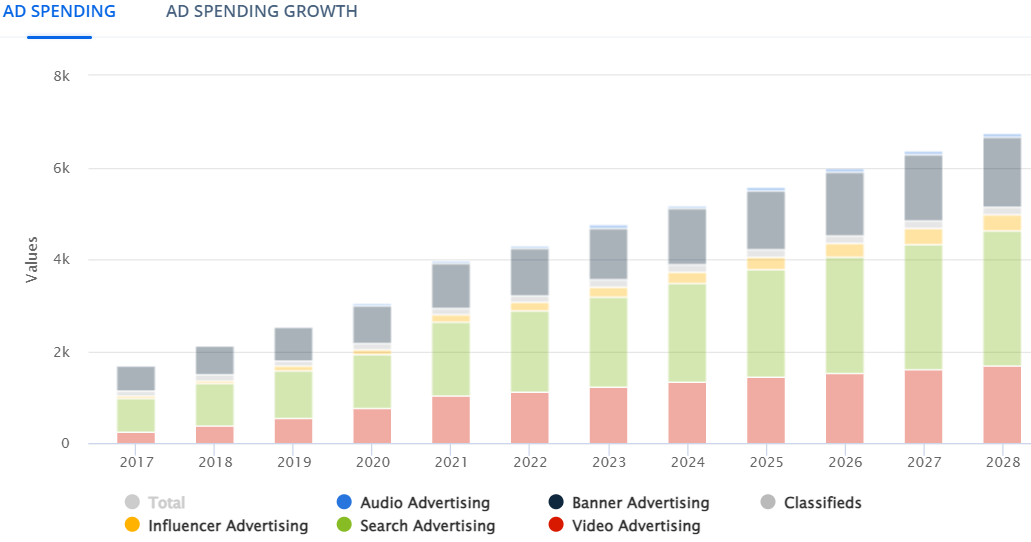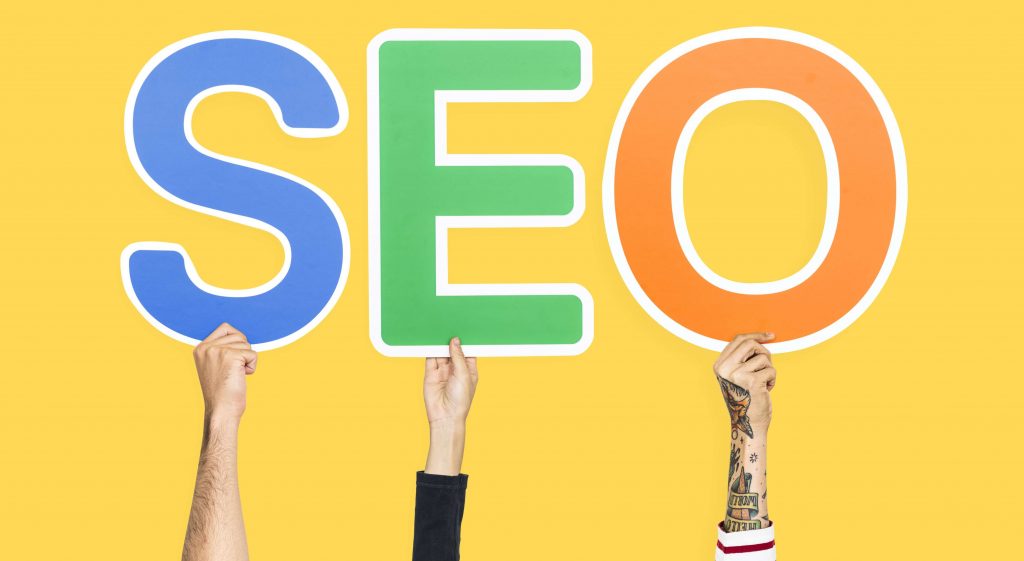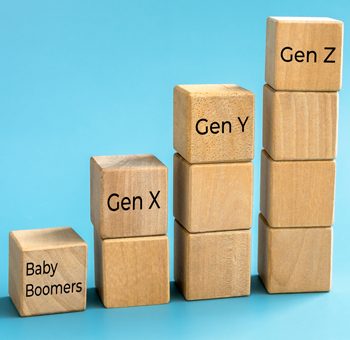
Will Digital Marketing Continue to Grow
- On 21/08/2024
- content marketing, digital marketing grow, digital marketing growth, Digital-marketing, Email marketing, SEO, video marketing
Digital marketing has experienced explosive growth over the past decade, and all indicators suggest that this trend is not slowing down anytime soon. As businesses increasingly shift their focus from traditional marketing channels to digital platforms, the landscape of marketing continues to evolve, offering new opportunities for strategic growth. In this article, we explore the reasons why digital marketing will continue to grow and the key trends driving this expansion.
1. The Rising Global Market Value of Digital Marketing
The global digital marketing industry is expected to reach a staggering $1.3 trillion by 2033, up from $366 billion in 2023. This remarkable growth is driven by the convenience and efficiency that digital marketing offers to both businesses and consumers. Digital platforms allow businesses to reach their target audiences more effectively, offering precise targeting options, cost efficiency, and measurable results. As consumers continue to spend more time online, the demand for digital marketing services is set to soar.
2. Increasing Budget Allocations for Digital Channels
In response to the growing importance of digital marketing, companies are allocating a significant portion of their marketing budgets to digital channels. In 2023, businesses in North America and Europe allocated 9.1% of their total revenue to marketing, with more than half of these budgets dedicated to paid media and marketing technology.
3. Mobile Advertising Dominates the Ad Spend
Mobile advertising is projected to account for 70% of total ad spending by 2028. With the majority of internet users accessing content via mobile devices, it’s no surprise that businesses are prioritizing mobile-friendly advertising strategies. This shift toward mobile advertising ensures that brands can reach their audiences wherever they are, providing a seamless and personalized experience.
4. The Power of Content Marketing
Content marketing continues to be a cornerstone of digital marketing strategies. With an estimated industry revenue increase of nearly 50% between 2022 and 2026, content marketing remains a cost-effective way for businesses to drive traffic, generate leads, and build brand loyalty. Blogs, which are used by 76% of marketers, remain the most popular form of content, while short-form videos are emerging as the top performers in terms of engagement and return on investment (ROI).
5. Video Marketing on the Rise
Video marketing is another area experiencing significant growth. By the end of 2024, the video advertising market is expected to be worth around $191 billion. The effectiveness of video content in capturing audience attention is undeniable, with over 3 billion people watching online videos at least once a month. Short-form videos, in particular, are gaining popularity due to their high engagement rates and ability to deliver quick, impactful messages.
6. The Dominance of Search Engine Optimization (SEO)
Search engine optimization (SEO) remains a crucial element of digital marketing. Ranking first on Google, for example, can generate nearly 40% of all organic clicks, making it a highly competitive space. As search engines continue to dominate the way consumers discover products and services, businesses must invest in SEO strategies to maintain and improve their online visibility.
7. The Enduring Relevance of Email Marketing
Despite the rise of social media and messaging apps, email marketing continues to be a powerful tool for building long-term customer relationships. With the number of email users projected to reach 4.73 billion by 2026, email remains an effective channel for personalized communication and high ROI. Automation is increasingly being used to enhance the efficiency of email campaigns, with 58% of marketers employing automation tools in their strategies.
8. The Emergence of Marketing Technology (MarTech)
Marketing technology, or MarTech, is playing a pivotal role in the growth of digital marketing. The MarTech industry reached a market size of $670 billion in 2023 and continues to expand as businesses adopt new technologies to optimize their marketing efforts. Tools powered by generative AI are revolutionizing content creation, targeting, and customer engagement, making it easier for marketers to deliver personalized experiences at scale.
The Future of Digital Marketing
The growth of digital marketing shows no signs of slowing down. As businesses continue to invest in digital channels, mobile advertising, content creation, and advanced technologies, the landscape of marketing will keep evolving. Staying ahead of these trends and adapting to new technologies will be key for businesses looking to thrive in the digital age. For marketers, the challenge lies in balancing creativity with data-driven strategies to meet the ever-changing demands of consumers.









